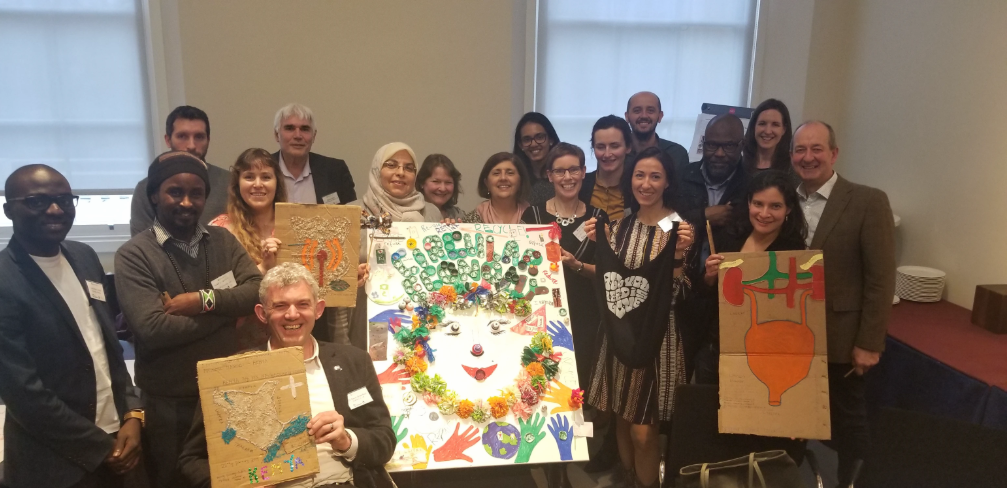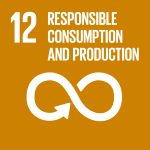Esta web utiliza cookies para que podamos ofrecerte la mejor experiencia de usuario posible. La información de las cookies se almacena en tu navegador y realiza funciones tales como reconocerte cuando vuelves a nuestra web o ayudar a nuestro equipo a comprender qué secciones de la web encuentras más interesantes y útiles.
EduKid-CE: Inspiring Young Generations with Circular Economy
Description
Institution
Organizations/areas of the university involved
University College London (UCL) (UK), Cairo University (Egypt), Ege University (Turkey), Notonlab (Kenya), ShambaIntel Africa Limited (Kenya), Soenecs (UK), The Royal Academy of Engineering (UK)
Country
Germany/Egypt
A key of a transition to sustainable consumption and production patterns and to circular economy mindset is to educate the young generations to become the driving force. EduKid-CE project was initiated as a seed fund following “Frontiers of Engineering for Development (FoEDev) Circular Economy Symposium” organized by the Royal Academy of Engineering in London 2018.
The main goal of EduKid-CE is to create a hybrid (electronic and traditional) educational platform to promote the concept & values of circular economy to younger generation. EduKid-CE international project partners are experts from UK, Egypt, Turkey & Kenya representing diverse background & expertise.
During the planning phase, a series of virtual meetings were held to develop an action plan & timeline with different project activities. Branding was done via project logo, project website, social media channels, country-tailored workshop flyer & T shirts. Educational materials were developed such as a “Mix & Match” & “Cross Words” games as well as “Binmatch” memory card game as an android app. Moreover, other open educational resources were examined from different learning platforms.
In the implementation phase, a series of 6 country-specific workshops (November 2018-March 2019) were held. Students from respective countries were introduced to circular economy & sustainable development related issues. Workshops were enriched by hands on activities, game based learning & artwork. The workshops called on kid’s abundant creativity and imagination & aimed at raising children’s awareness about the concept of circular economy & getting their interest in complex issues such as recycling, biomimicry, climate change, water scarcity & pollution.
Results and impact measured or expected
EduKid-CE workshops hosted 210 students (age range 5 -16 years) in 4 countries during the period from November 2018 to March 2019. In addition, project website, social media channels & online educational content facilitated global outreach. Below are EduKid-CE project deliverables:
-Six country specific circular economy workshops in UK, Egypt, Kenya & Turkey.
-EduKid-CE website with educational materials.
-Glossary for common circular economy-related concepts & definitions.
-Documentary video.
-Binmatch educational game-based android application on waste recycling for kids & families.
-Concluding workshop at the Royal Academy of Engineering in London, March 2019.
-Interactive Storytelling of Edukid-CE project journey.
Connection with the SDG framework
Sustainable Consumption and Production (SDG 12) aims at “doing more and better with less” promoting resource and energy efficiency and sustainable infrastructures. A key concept to achieve SDG12 is circularity, which explores opportunities to adopt closed material loops and enhanced resource efficiency. Circular Economy (CE) implies a paradigm shift that promotes business and economic opportunities while leveraging environmental and social impacts.
According to the World Economic Forum’s 2019 Circularity Gap Report, four actions are identified to close the loop: 1) translating global trends to national, regional and commercial pathways; 2) developing decision metrics and a measurement framework; 3) facilitating peer-to-peer learning; and 4) building a global coalition for action.
EduKid-CE is an example of translating circular economy global trend into local actions while co-creating knowledge & sharing experiences & lessons learned among project team.
Barriers and follow up
The first challenge we face as a team is being located in different countries/regions. Therefore, virtual meetings were scheduled to best fit our different time zones. Also, students in the respective countries were found to speak 4 different languages. So, in addition to developing customized learning materials, we took advantage of using emoji, as a universal language for communication, as well as artwork & multimedia content that are easily understandable among different cultures.
In the next phase, we plan for scaling up the project to include more countries & to expand the online educational platform with more learning resources that would include kids-generated content. At a long term scale, systematic integration of circular economy & sustainable development in regular school curricula would be the ultimate goal.
Education 4 SDG funciona gracias a WordPress


